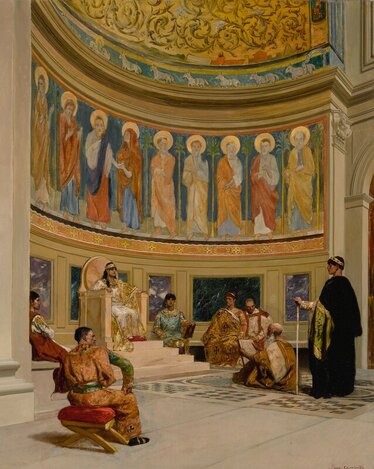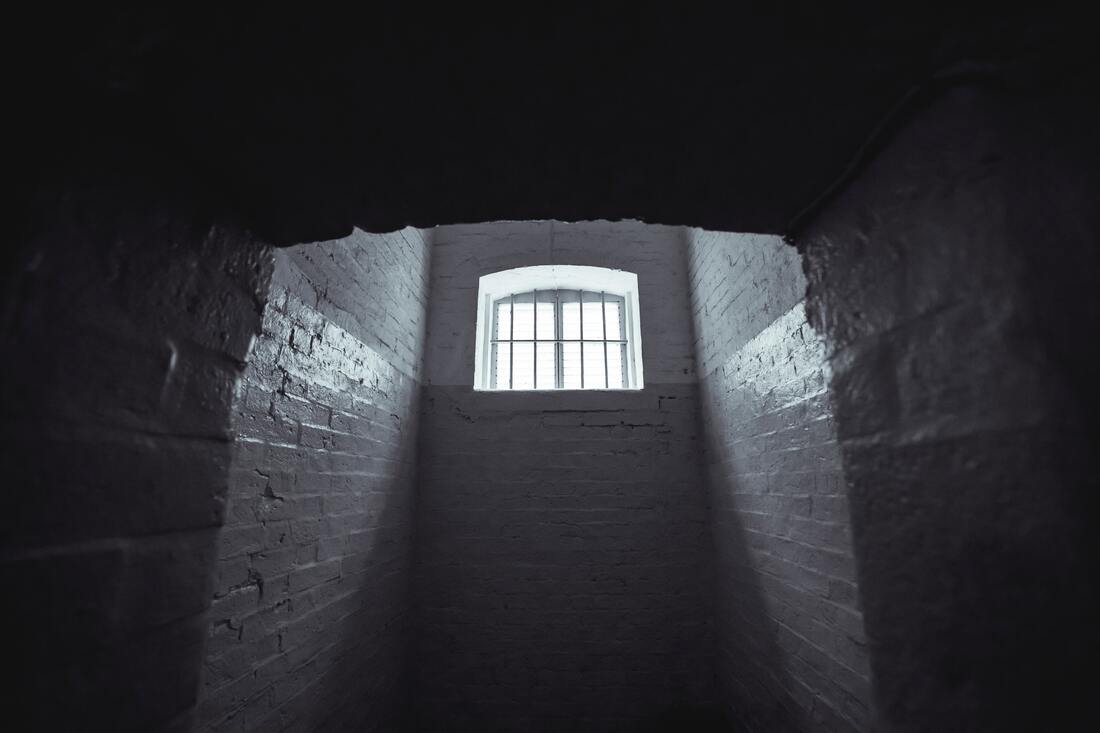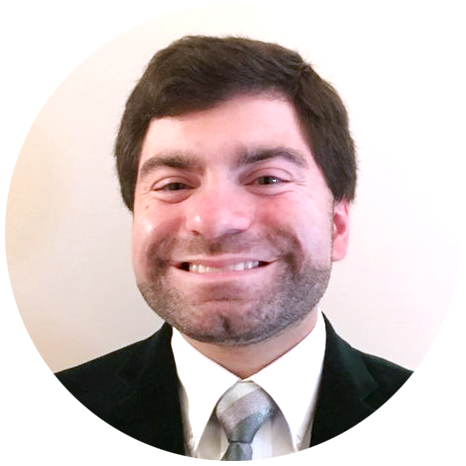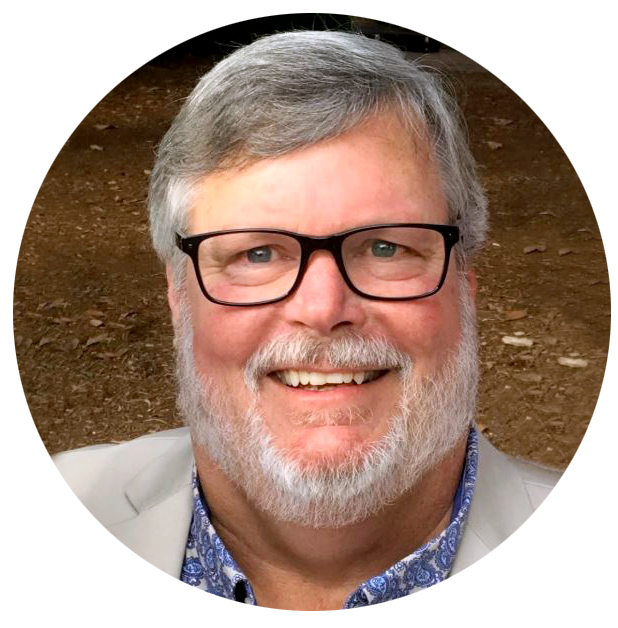|
Saint John Chrysostom (Archbishop of Constantinople) Exiled by Empress Eudoxia By Jean-Joseph Benjamin-Constant (1845-1902) Motto: "Fight the good fight of faith, lay hold on eternal life, whereunto thou art also called" (1Timothy 6:12a) John, God’s fellow worker (1 Corinthians 3:9) and one amongst those who have built on the foundation of the Church (1 Corinthians 3:10), earned his fame as a master of speech through the nickname given by his coevals “Golden Mouthed.” This nickname (Greek- Chrysostom) appeared for the first time in what is today known as the Constitution of Pope Vigilius (cf. P.L., LX, 217) in the year 553. Chrysostom is generally considered the most prominent “doctor” of the Greek Church (Orthodox) and the greatest preacher who was ever heard from the pulpit. His natural gifts, together with the external circumstances contributed to the person he was. Whether he indeed had a golden mouth, it is subject to his coeval’s judgement. Whether his service and work were “golden” (1 Corinthians 3:10-15), will be revealed in the Day of the Lord, in whose coming he set all his hope, not in men. For from men he oftentimes received much disappointment, evil schemes, betrayals, unfair trials, and sufferings that eventually led to his death (Jeremiah 17:9). However, for a true athlete of Christ, nothing should ever constitute an impediment for preaching and a reason for losing heart, but rather a challenge and an impetus for fighting. Chrysostom always proved himself courageous and tireless. It is not with earthly weapons that he fought with, but with those sharpened and strengthened by the Lord Himself, meant to destroy every fortress of the human mind and soul that opposes the Truth and the knowledge of God (2 Corinthians 10:4-5). He proved himself to be a true fighter and even more, a conqueror! For the power of God has been proven in his life throughout all the struggles and battles that were beyond human power to handle (2 Corinthians 12:9-10). In one life lived to an extreme intensity, he fought on two fronts. Firstly, he fought to achieve holiness. After he conquered every opposition of the flesh (nature) and defeated every enemy and obstacle in his way towards heavens, he started another fight: the fight for the Church of Christ with the entire multitude of believers, to the highest steps of holiness and Christian purity (Virgil Gheorghiu. Saint Jean Bouche d'Or, “Hommes de Dieu,” Librairie Pion. 1957, © Editions du Rocher). ⁂⁂⁂ John Chrysostom was born somewhere between the years 345 and 349, in Antioch, on the River Orontes, in the capital of the Roman province of Syria (today Antakya, Turkey). He belonged to a rich family. His father was a superior officer, Magister Militum Orientis, a commander of the Roman Chivalry in Syria. The only thing known about him is that his name was Secundus. Historians did not mention his other two or three names, as it was in the Roman custom of the time, but have chosen the Greek custom, which was more strongly rooted in the hellenised society of the Eastern parts of the Roman Empire. The same applies for John. Secundus, who was more advanced in years, married a young woman of only 16 from Antioch, Anthusa. Their first child was a daughter, whose name remains unknown. Their second child was John. General Secundus died shortly after John was born. Anthusa was then left alone to raise two children before she turned 20. They lived together with one of Secundus’ sisters, Sabiniana, who, later on, stood by John’s side in the most difficult moments of his life (during his exile), despite her being 80 years old. Refusing to remarry, Anthusa dedicated the rest of her life to raising the two children and managing the fortune she inherited from her late husband. Despite being very young and inexperienced, she succeeded. In later years, John recalled how she confessed the struggles she went through as a widow: “You can never reproach me for lessening the possessions your father left you despite the challenges and dangers widowhood brings by, which for so many women had tragic consequences. I have kept for you all these things in their integrity, even though I spared nothing in order to give you a solid and brilliant education” (John Chrysostome. On Priesthood/De Sarcedotio, book I). John’s biographers often mention his mother as being a very pious Christian woman. Antioch, the city where John saw daylight for the first time, was at the time one of the most emblematic cities of Europe. Yes, it is no confusion! At the time, Europe was considered to include all cities that adhered to the Greek and Roman culture and civilization. During John Chrysostom’s time, the borders of Europe were placed on the Euphrates; Syria, Egypt, and Asia Minor were integral parts of it. When the Apostle Paul and the other apostles of Christ were preaching in the areas of Asia Minor, of Cappadocia, in the cities of Antioch or Ephesus and all the other cities we read about in the New Testament. They all belonged to Europe and were the full expression of the Greek and Roman civilization. Concerning the history of Antioch, the city was founded by one the former generals of Alexander the Great, Seleucus I Nicator, approximately 650 years before the birth of John. The fact that John was born in this city that took pride in being called the Pearl of the East or The City of Gold, has played an important role in influencing his personality. It was at the time one of the most beautiful cities in the world and the third in importance in the Roman Empire, after Rome and the Egyptian Alexandria. It was also the general headquarters of the imperial army in Syria and whose attributes were to defend the Eastern borders against the attacks of the powerful and tireless enemy: the Persian Empire. The city was home to approximately 500,000 people, was beautified with numerous and imposing temples, aqueducts, theatres, and public baths which were encouraged through direct subsidies from the Roman Emperors. Herod, the Roman-appointed king of Judaea, also contributed to the adornment of this city with two porticos (Greek: stoa) and a marble pavement. If it is necessary to recall another of the many ironies of history, allowed by the Lord, it is worth mentioning the fact that after the destruction of Jerusalem and the exile of the Jews, Antioch was adorned by the future Emperor Titus with the Seraphims taken as war prey from the Temple! Antioch was the first city in history that enjoyed public illumination on its streets, beginning with the 4th century AD. This is recorded by Libanus (314-393 AD), a great pagan intellectual, who in his panegyric called Antiochikos (Oration 11) brought praise to his city of birth (according the John Wilkes. Encyclopedia Londinensis. volume 12, 1814, p. 119; A.F. Norman. Antioch as a Centre of Hellenic Culture, as Observed by Libanus. Liverpool University Press, 1st edition, 2001). However, the most important and glorious page in the history of Antioch is the fact that the Church of Antioch was founded by the Apostles of our Lord Jesus themselves! Here preaching and bringing the Good News, the Gospel, the Apostles Peter, Paul, and Barnabas. Also, it was here the followers of Christ were called Christians for the first time (Acts 11:26). Until then, they were known as “Nazarenes” or “Galileans.” After these short presentations/descriptions we can imagine, to a certain extent, the rhythms of the daily lives as well as the atmosphere and the air that John Chrysostom breathed in the fortress of Antioch, where the majority of the population was Christian. We can safely assume that a great part of John’s personality is a reflection of the brilliance and the spiritual elevation of Antioch. But, concerning his intellectual maturity and edification, the most important contribution was brought by the most appreciated and highly esteemed professor in the Roman Empire, the rhetorician Libanius. After leaving Antioch in his early youth in order to finish his studies in Athens, Libanius arrived in Constantinople, where he became the leader of the most renowned school of rhetoric. His success triggered the envy of some -- especially his former professor, Bernarchius, who falsely accused him of sorcery and witchcraft. This was a reason for which the prefect of the city would eventually bash Libanius in 346 AD. He then arrived in Nicea where, after a short residence, left for Nicomedia. He remained there for five years and gained a solid reputation. At the call of the Emperor Julian the Apostate, who frequently audited his speeches, he returned for Constantinople where, after a short period of time, he was again forced to leave due to the hostility he faced in the city. This time he came back to his place of birth, the city of Antioch, where he opened a school of rhetoric. This was an opportunity Anthusa did not dare to lose, so she offered her son the best possible education. At around the age of 18, John started participating in the classes of the famous sophist. The intellectual capacity and the genius of this young man stirred the admiration of his master. According to the church historian Sozomenus, Libanius was asked on his deathbed which one of his students would deserve to take his place. He then regretfully answered: “John, if it weren’t for the Christians who stole him from us.” (Sox. H.E. lib. Viii. c2). When John started to practice law, his rhetorical talent was quickly noticed. His speeches were listened to with great joy and admiration by Libanius himself, a giant of rhetoric. All conditions were set for a brilliant future of a judicial career and an exceptional social status: fame, fortune, and a high position in society. However, something even greater than his convictions, his plans and extremely favourable circumstances started to take over his heart. A state of detachment from all these things, a transformation in his own perceptions and convictions invaded his being. This was similar to Paul, another young man from Tarsus in the neighbouring Cilicia, whom John started to view these things as a “loss,” as absolutely worthless (Philippians 3:7) compared to the treasure unhoped for. The everlasting happiness of an eternal kingdom with Jesus Christ, the Lord (Matthew 13:44), The One whose “incomprehensible riches” (Ephesians 3:8) await those who accept Him as Lord and Emperor, then become full citizens of Heaven (Ephesians 2:6,19; Philippians 3:20). The gentle, reinvigorating breeze coming from far back in time, from the endless plane of eternity reached him and caressed his entire being. “The mystery that has been kept hidden for ages and generations” finally arrived and revealed itself to him: Christ was in his heart who brought to life the “hope of the eternal glory” with God (Colossians 1:26-27). Of course, it is only the elevated “flight” of his eloquence possessed only by him, which could help carry us on the wings of his thoughts, reaching that pleasant tranquillity of his soul and understanding the absence of any existential fear and peace that took over his entire being. It is so similar to the peace Adam and Eve enjoyed before they knew sin, while they were talking to God in the cool evening breeze (Genesis 3:8). John was, of course not in heaven, but he could taste it already. His master Libanius unfortunately never reached that experience, being too full of himself and his convictions, too rooted in his own philosophical nostalgias. He was one of the last coryphée of paganism, from which he could never depart. Maybe it was also because he, throughout his entire career, was never preoccupied with anything other than finding carefully crafted verbal formulas with an appearance of truth, rather than pursuing truth itself (he was a fully dedicated sophist!). Libanius took pleasure in his own word games that ensured him great popularity, games that eventually became his second nature. He was not ready to denounce his comfort in thinking to declare all that he was chasing “vanity and chase for the wind.” Had he been more rigorous in his research and honest to himself, he would have recognized that his entire life was nothing but a compromise and that his soul needed something completely different, something that neither rhetoric nor pagan rituals could bring. John had the courage to confront his master, in the beginning at least in principle (Job 32:6-9) by accepting to research other sources, outside his master’s manuals. He chose to research what the humble and ever more numerous Christians were believing. Eventually, this led him to denounce the disappointments of an imposed conventionalism and word games, while allowing him to discover “the word of truth” (Ephesians 1:13). Had Libanius renounced his pride (self-sufficiency) coming from his authority and fame (Job 32:9), he could have reached the conclusion that he was not a master of the truth, but that truth itself is free from any confinements of the human mind and does not subdue the mind and heart, but frees them! (John 8:31-32). John became, therefore, disappointed in the legal career he chose, despite his quick rise to fame. He knew very well what all these compromises meant and oftentimes he covered the truth by crafty speeches: “his soul revolted at the contrast between the purity of the gospel standard and the baseness of the aims and viciousness of the practices prevalent in the profession he had chosen. To accept a fee for making the worse appear the better case seemed to his generous and guileless soul to be bribed to lie- to take satan’s wages- to sin against his own soul!” (Wace, Henry. Dictionary of Christian Biography and Literature). To be continued...
0 Comments
By Garrett Smith | @gwsmith93 | TRINICY.org Since the dawn of time, humans have been in a state of rebellion. Beginning with Adam and Eve in the Garden of Eden, humanity has constantly disobeyed authority, whether it be Divine Law or the law of the land. The American Revolution marked a prime example of this, as seen with the colonists and their refusal to accept increasing government infringement in their personal lives at the hands of the British Empire. Most conservatives agree that a great republic is built upon a strong sense of law and order that also respects humanity’s natural rights. These natural rights are enshrined in the Declaration of Independence as “unalienable” rights, which include life, liberty, and the pursuit of happiness. The establishment of America was unique in that it was not only the first nation formed out of rebellion from an empire, but it was also the first to tell its federal government it had to respect natural rights. The end of the Civil War in 1865 soon brought about the addition of three amendments to the U.S. Constitution in an effort to help secure natural rights for freed slaves. Even after the addition of these amendments, however, many states adopted laws within their own constitutions that prohibited African-Americans from exercising constitutional rights. Over the next century, African-Americans would endure horrible treatment from the government, on both the state and federal levels. In the 1950s, however, things began to change as America entered the Civil Rights Era. Many leaders would become synonymous with this movement, but one - Dr. Martin Luther King Jr. - garnered perhaps the most recognition. DR. KING, THE MODERATE DEMONSTRATOR American history is filled with examples of African-Americans seeking justice and the upholding of their constitutional rights. Martin Luther King Jr. was certainly a moderate when it came to many issues. On one hand, figureheads such as Frederick Douglass and Booker T. Washington believed in change primarily through legislation and adopting the founders’ view of natural rights. As such, they believed change would occur over time. On the other hand, radical extremists, such as Malcolm X, were proponents of militancy. Dr. King, however, stood in the middle. Unlike Douglass and Washington, King advocated intervention by method of peaceful protest; therefore, King’s idea of demonstration was different from the type sought by Malcolm X. King gained national attention during the Montgomery Bus Boycott of 1955-1956. During this time, peaceful demonstrators in Montgomery, Alabama protested the segregationist policies of the city’s bus line. With Rosa Parks refusing to surrender her bus seat to a White man, the American Civil Rights Movement had officially begun. With a victory in Montgomery, the movement soon spread to other parts of the nation. ON TO BIRMINGHAM Many cities throughout the nation - both South and North - experienced racial injustice. Going into the 1960s, civil rights demonstrations broke out in Greensboro, North Carolina; Nashville, Tennessee; Washington, D.C.; Chicago, Illinois; Los Angeles, California; and various other locations. Perhaps the biggest turning point in the movement, however, would have been in Birmingham, Alabama. In April 1963, civil rights protesters there were brutally attacked by the police forces of Eugene “Bull” Connor. While the campaign resulted in several positive outcomes for the Civil Rights Movement, it also, unfortunately, led to the arrest of Dr. King. FROM BIRMINGHAM JAIL Following his arrest, Dr. King spent 11 days in the Birmingham City Jail. During his time there, he wrote a letter to the American people. In the letter, King discusses a topic that remains timeless: Legality vs. Morality. At the start, King acknowledged the issue regarding the influence of so-called “outside agitators.” Some individuals referred to King as such, and wondered why he would bother to come to Birmingham to stir attention for the Civil Rights Movement. As far as they were concerned, he should have kept away and minded his own. To King, however, being a peaceful outside agitator was not an option; it was a necessity. King recalled the fact that, by his own critics’ logic, the Apostle Paul was technically an outside agitator. King remarked that Paul left his village of Tarsus to spread the Gospel of Christ to Greece and Rome. Paul, like Dr. King, was arrested for his actions, but stood strong for what was right. Using Paul as an example, it was up to Dr. King to spread his gospel of freedom. “WHY WE CAN’T WAIT” King soon brought to light one of the most pressing issues of the entire movement: How much longer? Many people were suggesting that the civil rights demonstrators simply wait on their Constitutional rights to be fully achieved. For King, however, the wait had lasted long enough. The Civil War had been over for nearly a century, and the end of it brought about not only the end of slavery, but also the addition of three new amendments to the Constitution. These new amendments secured various rights for African-Americans, but many states sought their way around the amendments through the addition of new laws within their own constitutions, as well as literacy tests and poll taxes. For nearly a hundred years after the Civil War, African-Americans had still not been granted equal rights and protection under the law. For King and many others, the wait had gone beyond long enough. The following excerpt from the letter was later taken by King and presented as a chapter in his 1964 memoir, according to the Martin Luther King, Jr. Research and Education Institute of Stanford University. He wrote, “I suppose it is easy for those who have never felt the stinging darts of segregation to say wait. But when you have seen vicious mobs lynch your mothers and daughters at will and drown your sisters and brothers at whim; when you have seen hate-filled policemen curse, kick, brutalize, and even kill your black brothers and sisters with impunity; when you see the vast majority of your twenty million Black brothers smoldering in an air-tight cage of poverty in the midst of an affluent society; when you suddenly find your tongue twisted and your speech stammering as you seek to explain to your six-year-old daughter why she can’t go to the public amusement park that has just been advertised on television, and see tears welling up in her little eyes when she is told that Funtown is closed to colored children, and see the depressing clouds of inferiority begin to form in her little mental sky, and see her begin to distort her little personality by unconsciously developing a bitterness toward white people; when you have to concoct an answer for a five-year-old son asking in agonizing pathos, ‘Daddy, why do white people treat colored people so mean?’; when you take a cross-country drive and find it necessary to sleep night after night in the uncomfortable corners of your automobile because no motel will accept you...when you are harried by day and haunted by night by the fact that you are Black, living constantly at tip-top stance never quite knowing what to expect next, and plagued with inner fears and outer resentments; when you are forever fighting a degenerating sense of ‘nobodiness’ - then you will understand why we find it difficult to wait.” UNJUST LAWS King then turned his attention to the primary subjects of the letter. In King’s view, human beings have an obligation to break laws that are in violation of natural rights. Knowing that the definition of an unjust law could be ambiguous if not properly explained, he explained, “A just law is a manmade code that squares with the moral law of God. An unjust law is a code that is out of harmony with the moral law. To put it in the terms of Saint Thomas Aquinas, an unjust law is a human law that is not rooted in eternal and natural law. Any law that uplifts human personality is just. Any law that degrades human personality is unjust. All segregation statutes are unjust because segregation distorts the soul and damages the personality.” King proceeded to cite the biblical example of disobeying human law when it conflicts with obeying God’s law. He wrote, “Of course, there is nothing new about this kind of civil disobedience. It was seen sublimely in the refusal of Shadrach, Meshach, and Abednego to obey the laws of Nebuchadnezzar because a higher moral law was involved. It was practiced superbly by the early Christians who were willing to face hungry lions and the excruciating pain of chopping blocks before submitting to certain unjust laws of the Roman Empire. To a degree, academic freedom is a reality because Socrates practiced social disobedience.” LEGALITY VS. MORALITY It is always important to remember that legality is not always equal to morality. In today’s society, issues such as abortion are often in the spotlight. While Christians are obligated to love those who have had abortions as Christ would, it does not mean we should support their actions. When Jesus walked the earth, He frequently stood among those who sinned, but He never once encouraged their wrong behavior. In fact, quite the opposite, as He warned them to steer clear of sin. “Hate the sin, love the sinner” may sound cliche, but it still rings true. In Dr. King’s letter, he recalled instances of freedom and human rights being violated throughout the past couple decades in the name of legality, through the horrors of National Socialism and Communism. King stated, “We can never forget that everything Hitler did in Germany was ‘legal’ and everything the Hungarian Freedom Fighters did in Hungary was ‘illegal.’ It was ‘illegal’ to aid and comfort a Jew in Hitler’s Germany. But I am sure that, if I had lived in Germany during that time, I would have aided and comforted my Jewish brothers, even though it was illegal. If I lived in a Communist country today where certain principles dear to the Christian faith are suppressed, I believe I would openly advocate disobeying these anti-religious laws.” King continued further stating that often the greatest stumbling blocks to freedom are not the ones in direct opposition to it, but rather, the “peaceful moderates” who prefer negative peace to positive peace with the presence of justice. After spending 11 days in the Birmingham City Jail, Dr. King was released. His Letter from Birmingham Jail was published on May 19, 1963. King would go on to become an icon for freedom and justice. Historically, America has seen its fair share of disobedience to unjust laws. Two of the most prominent examples would be the Boston Tea Party and the Underground Railroad. Both of these acts have one thing in common: they resulted from individuals who refused to place the immorality of man’s law above the divinity of God’s law and heavenly-inspired natural rights. Today, when freedom is threatened by tyrannical legislation, may we always stand firm in the faith and remain everlasting guards for justice. Let us never forget Dr. King’s timeless phrase: “Injustice anywhere is a threat to justice everywhere.”
Photo credit: cdn.pixabay.com One of the great misunderstandings concerning the Christian life is, if we are ‘good,’ then we will be ‘spiritual’ people and will please the God who seems never to be happy with us! True Christians are those who have appropriated, by faith, the substitutionary payment for sin Jesus Christ purchased for them by His death, burial, and resurrection. He never insisted we should attempt to keep the law, which we know to be futile. They often wonder that, if salvation has purchased for them a new life in Christ, then why does victory over sin seem so difficult, and actually impossible? “If only I were a good child, then my parents would love me.” So goes the backwards assumption that only leads to discouragement, a sense of despair, and to defection that leaves the Christian uttering the words of surrender to their spiritual mirage. “If the life of victory is always before me, but never attainable, then why bother?!” If we try to live by the letter of the law, we are doomed to die by it. The solution to this dilemma is very simple, but because this failed approach of merit is so ingrained into our view of life and living, it is not very easy. In Paul’s letter to the believers in Galatia, an area located in modern day Turkey, in Chapter 5, he tells the believers there the formula for what he describes as our Walk in the Spirit. I include the text for verses 16-25 here, because it is the text that imparts truth, power, and the possibility of the victorious Christian life.
The formula for fullness in the Christian life is this: Walk in the Spirit and you will not fulfill the lust, passion, and empty striving of the flesh. It does not say we must try to avoid and triumph over the flesh, and by that, enter into and enjoy the Spirit life. So many who read the words in verse 16, read it in reverse. They understand Paul to be saying that if we do not fulfill the passions of the flesh, then we will walk in the Spirit. No! Paul says the very opposite. He says if we walk, move, and have our lives in the very Spirit of God who indwells every believer from the moment of salvation, it is then that we can have freedom from the sin that so easily controls us. “God, who also made us adequate as servants of a new covenant, not of the letter, but of the Spirit; for the letter kills, but the Spirit gives life” 2 Corinthians 3:5-6. If we try to live by the letter of the Law, we will fail and die by the law. If we choose to live by the Law of the Spirit, He will succeed and we will live truly spiritual lives. To refer to the child analogy, a child does not need to try to be good so that the parent will love him. When the parent loves the child well, the child’s passion and power come from that love, and the child will then be motivated and equipped to live a life that pleases their parent! It is not that the flesh is evil. It is neutral, yet tainted by the inherited sin nature that Adam passed down to all people...the Ultimate Pandemic! People like to be hopeful and magnanimous and say what is patently false, that man is “basically good.” No, man is basically a sinner and does not need to learn how to be selfish. No newborn child has to learn how to make themself the center of their universe. At salvation the sin nature is not eradicated, although it will be in the future. But for now, we should know that the power and sway of sin over the believer has been broken, as chains off of a prisoner who has been set free. He does not need to live like a prisoner any more. Once bound by shackles, he has been set free. The struggle is described in Galatians 5:17 where the Word says that the battle rages. However, the outcome has been won and the ultimate victory is sure. As it says in verse 25, “If we live in the Spirit, let us also walk in the Spirit.” How did we receive eternal life and become born again by the Spirit at salvation? By faith (John 3:3-6)! How should we walk about and move and live in the Spirit? Also by faith! It is not by the keeping of the law that makes us spiritual. It is by realizing that we are spiritual creations and living by faith in the power of the Spirit who indwells every believer that we will experience and enjoy victory. In Galatians 5:22, 23, Paul describes the Fruit of the Spirit. It is not that we have to strive to produce this fruit in our lives. It is that, as we walk by faith in the realm and power of the Holy Spirit of God who resides in us, that He will produce the evidence of His presence by displaying this ‘nine-flavored fruit.’ It is not Yin & Yang battling it out...it is not good versus evil that leads to the victory of the stronger entity...it is not ‘good’ spirit trying to beat ‘bad’ flesh...it is not even God wrestling with Satan! The battle has already been won. Live like it! We have been loved with an infinite love. Respond to it! We have been victorious, through Christ, over sin. Celebrate it! The Fruit of the Spirit is not something for us to strive for. Because of our salvation in Jesus Christ, and the indwelling of the Holy Spirit of God, the fruit of the Spirit in our lives is in fact the evidence that we have ceased from striving, and started truly living! “This I say then: Walk in the Spirit and you shall not fulfill the lust of the flesh.”
By Dr. Dave Baker | TRINICY.org
FOUNDATIONAL QUESTIONS TRINICY: What spiritual habits and disciplines do you follow on a daily basis? DAVE: I have a time of Bible reading/study, concerted prayer, then ongoing prayer throughout the day. TRINICY: Out of all God’s attributes, which one amazes you most? Why? DAVE: Forgiveness. While I can forgive and move on from when others have wronged me, I really do struggle to fully forget. Not only does God fully forget, His love for each of us continues to grow. Amazing! TRINICY: Who led you to Christ? Who are you leading or hope to lead to Christ? DAVE: My family led me and I have continued as a Christian throughout my life. My goal is to lead all who I come in contact with to a life of Christ. TRINICY: What primary talents and gift(s) has God given you? How are you using them for the kingdom? DAVE: His greatest gift is my ability to form relationships and lead. TRINICY: Which person from the Bible do you resonate with the most? Why? DAVE: Unfortunately, Job. I have faced trial and tribulation one after another, yet God has placed a calm within me to know He has not forsaken me and that He is always forging my path forward. TRINICY: What social issue do you care most about? Why? DAVE: The social issue that hits me most is the ability for Christians to outwardly proclaim our faith without slander, persecution, or silencing. We are the only religion in the U.S. treated this way and doing so is not only wrong on a human level, it also is contradictory to our Constitution. TRINICY-RELATED QUESTIONS TRINICY: What does being a Christian mean to you? Why Are you a Christian? DAVE: To me, being a Christian means following the path Jesus Christ paved for us during His time on earth, which begins with loving others. I am a Christian because I believe in Jesus and the Trinity and seek to guide others into our Heavenly family. TRINICY: What does being a Conservative mean to you? Why Are you a Conservative? DAVE: Conservatives believe in the ability to manage themselves and their own affairs with as little government meddling as possible, which is why I am a Conservative. I believe in the need of local and federal government systems to maintain the peace and provide general oversight. TRINICY: What has your experience been like as a Conservative Christian on and/or off campus? DAVE: Being a Christian presents challenges, but adding Conservative creates the likelihood of even more because of the political turmoil now. I have been ostracized and berated for my beliefs on and off campus as a student and employee. TRINICY: What were your first thoughts when you heard about TRINICY? DAVE: I was so excited! These people are me!! TRINICY: What book(s) do you recommend conservative Christians read to help strengthen their faith in a secular and/or liberal setting? DAVE: The last book I read is The Northfield Way by Rick Dunn. It is focused on a basketball coach who instilled a set of non-negotiable, Christian-based values the entire town adopted over the course of his 30-year reign as coach. TRINICY: What advice or resource would you offer to fellow conservative Christians today? DAVE: Seek out other conservative Christians because, together, we are stronger. OTHER QUESTIONS TRINICY: What is an interesting/unusual fact most people don’t know about you? DAVE: I spent 6 weeks in a coma, died many times, including an out-of-body experience, and am still alive and kicking! TRINICY: What passion or dream keeps you up at night or wakes you up in the morning? DAVE: My current dream is securing the job God has for me. TRINICY: If Jesus were physically here now, what would you want to ask Him or talk about? DAVE: I would want to give Him a hug, then have Him just tell me a story because it would be exactly what I would need in that moment. TRINICY: What are the three greatest life lessons you’ve learned thus far? DAVE: Be forgiving and understanding; work harder and smarter than you think the job will take; be open to God's direction for life. TRINICY: Which Christian song best connects with you? DAVE: Sidewalk Prophets - Help Me Find It, but letting go is a constant work in progress for me. TRINICY: What legacy do you want to leave as a Christian? DAVE: I hope to be a true guide for others to better connect with God and a more successful walk through life. TRINICY: Which teacher has impacted you most? How? DAVE: My sergeant in my Army training was such a poor teacher that my buddy and I took the class over. Until that time, I had resisted the call to teach. TRINICY: What is your life verse? Why? DAVE: Proverbs 19:21 because I need to be more open to needs God has for my life rather than me thinking I am in full charge of it. TRINICY: Which world events have influenced, changed, or shaped your life? DAVE: Ronald Reagan's presidency showed me leading unafraid with grace and determination with a foundation of Conservative Christianity is the way. TRINICY: What is the most difficult thing for you about being a Christian? DAVE: Society has made it so difficult, it would be impossible without His influence, mercy, and grace. TRINICY: What, thus far, has been your greatest "praise report"? DAVE: I live! Despite almost my entire medical team giving up, He never did! TRINICY: What is a question you wish we had asked but didn't? What is your response to this self-selected question? DAVE: I feel there is only one remaining question...What is your shoe size!? I wear a size 11 shoe! HA!!! WE WOULD LOVE TO FEATURE MORE CONSERVATIVE CHRISTIANS ON TRINICY. If you know of other conservative Christians on or off campus we could feature, please email us at [email protected] OR send them directly to the Spotlight Interview form HERE.
By Garrett Smith | @gwsmith93 | TRINICY.org Most people who are involved in the American political field have heard the following statement: “Conservatives are fascists and Nazis who seek to force their beliefs on others.” Especially since the 1960s, American Progressives in particular have been quick to condemn Republicans and their leaders - such as Ronald Reagan and Donald Trump - as Nazis and Fascist sympathizers. Read on for a thorough debunking of the Nazi Conservative connection. Many often wonder if the Left is making a valid point. After all, Nazism was rooted in a nationalist ideology and many Conservatives often take pride in their national heritage. The Left's rationale relies on their claim that just because Nazis were “National Socialists,” does not mean they were actually Socialists. Both at the root and on the cover, however, Nazis and Conservatives are not alike. To prove that, we will examine the facts using the Nazi Party Platform and perform a short break-down of each subject. NAZIS AND NATIONALISM In debunking the Nazi Conservative claim, one issue must be made abundantly clear from the start: Nazis were ultranationalist Imperialists who sought to greatly expand the size of the German state. Unlike Communists, Nazis despised globalism and viewed the German state, with the Aryan race, as their sources of greatness. When compared to the type of nationalism embraced by Conservatives, Nazis and Conservatives actually do not share much in common. This is especially evident for anyone who reads the Nazi Party Platform, created by Adolf Hitler in 1920. The fifth point states, “Those who are not citizens must live in Germany as foreigners and must be subject to the law of aliens.” Likewise, the platform holds that only German citizens can be responsible for selecting government officials. On the surface, this may seem like a strong comparison. A closer examination, however, something entirely different is revealed. The platform goes on to state, “Any further immigration of non-Germans must be prevented. We demand that all non-Germans who have entered Germany since August 2, 1914, shall be compelled to leave the Reich immediately.” The true Conservative, however, holds a different belief entirely. Conservatives embrace legal immigration, cherish it, and recognize legal immigrants who wish to assimilate into the country’s cultural melting pot will help improve the greatness of the nation. All the Conservative asks is for immigrants to assimilate in the legal and proper manner, without cutting corners, so as to avoid issues such as voter fraud. On this, Nazis and Conservatives are very different. ECONOMICS AND LABOR The Conservative believes the fruit of someone’s labor belongs solely to that person. No other human being has a right to claim someone’s hard-earned pay. Likewise, though Conservatives cherish a hard-working spirit, they believe human beings were created for more than just work. While Communists and like-minded Socialists are proponents of organized wealth distribution, how did Nazis hold up on this issue? Point 10 of the Nazi Party Platform states, “The first duty of every citizen must be to work mentally or physically. No individual shall do any work that offends against the interest of the community to the benefit of all.” This is a thoroughly-Socialist statement and not much different from the labor beliefs of Communists. While the Nazi Party did not share with Communists the belief in class warfare, and they did hold some regard for a middle class. This is evident with point 16 in which they demanded “the immediate communalization of large stores which will be rented cheaply to small tradespeople, and the strongest consideration must be given to ensure that small traders shall deliver the supplies needed by the state, the provinces and the municipalities.” Nazis also, like Soviets and Chinese Communists, demanded agrarian reform, and stated any land needed for the purposes of the state shall be taken without compensation for landowners (point 17). Nazis also included mandatory profit-sharing for large industries in their platform, as well as the nationalization of trusts. Though Nazis and Communists are different in many ways, they both share a mutual belief pertaining to societal welfare: common comes good before individual good. NOT-SO-FREE SPEECH AND PRESS While Conservatives seek to uphold the constitutional principle of free speech and press, Nazis sought something different entirely. Point 23 of the platform states, “Newspapers transgressing against the common welfare shall be suppressed. We demand legal action against those tendencies in art and literature that have a disruptive influence upon the life of our folk, and any organizations that offend against the foregoing demands shall be dissolved.” The Nazis also made it clear non-Germans were very limited in their press rights and non-Germans could not publish their material in the Germanic language. Conservatives, on the other hand, believe legal immigrants who are not yet citizens still hold various rights in the country, especially pertaining to free speech. NAZIS AND RELIGION It has often been said that Nazis were Christians, and therefore, Nazis were Conservatives who wanted to force their religious beliefs on others. While Nazis certainly wanted to impose their will on others, they were not Christians. The Nazi Party Platform states in point 24 they would be tolerant of any religion, so long as it did not interfere with the Nazis’ belief in the superior Germanic race. To further this platform tenant, Nazis omitted all Jewish heritage from the Bible. Later, point 24 states, “The Party as such represents the point of view of a Positive Christianity without binding itself to any one particular confession.” Positive Christianity, developed by the Nazis, eliminated the parts of the Bible that contained Jewish lineage or history. Christians believe Jesus Christ is the son of God (with Jewish lineage), that He died for our sins on a cross, and that He arose on the third day. William L. Shirer explained in The Rise and Fall of the Third Reich, how, during World War II, Nazis sought to replace the Bible and the Cross with Mein Kampf and the swastika. They also rejected dependence on the Apostle’s Creed. Shirer continued by stating Nazis wanted the “extermination of the foreign Christian faiths imported into Germany.” No, Nazis were most definitely not Christian Conservatives. WERE NAZIS PROGRESSIVE? Given the evidence from their own platform, it should be abundantly clear Nazis were not the equivalent of Conservatives. While they were different from Communists in many ways, they were alike in others, namely on the principle that common good always precedes individual good. Regarding Socialism, Nazis sought many socialist aspects, albeit on a nationalist level. It was Gregor Strasser of the Nazi Party who said, “We are Socialists. We are enemies, deadly enemies, of today’s capitalist economic system with its exploitation of the economically weak, its unfair wage system, its immoral way of judging other human beings in terms of their wealth and their money, instead of their responsibility and their performance, and we are determined to destroy this system whatever happens!” Nazis were not Capitalist Conservatives who sought a free market. While they were not Communists, one does not have to be an outright Communist to be a Socialist. Self-described Democratic Socialists, like Sen Bernie Sanders (I-VT) often take pride in that belief. National Socialism is still Socialism, albeit in a different form. Two examples of post-World War II dictators who incorporated elements of Socialism into their nationalist beliefs were Muammar Gaddafi and Saddam Hussein. DEBUNKING THE NAZI CONSERVATIVE CLAIM COMPLETE Though different from Communists in many aspects, Nazis were the Progressives of their country who sought to “progress” Germany into their twisted vision of a utopia, done in the name of “bettering society.” As historian Modris Eksteins states in Rites of Spring, the goals of the Nazi Party were “distinctly progressive...The intention of the movement was to create a new type of human being from whom would spring a new reality, a new social system, and eventually, a new international order.” Debunking the Nazi Conservative claim was not difficult nor was it a stretch. After doing so, the hope is that Christians and Conservatives will always have the wisdom, courage, and strength to defend their values from those who seek to accuse them of aligning with evil ideologies. GARRETT SMITH
By Kate Wahnsiedler | TRINICY.org FOUNDATIONAL QUESTIONS TRINICY: What spiritual habits and disciplines do you follow on a daily basis? KATE: I pray every night and I'm trying to say the rosary more often, because I am Catholic, and for Catholic's the rosary is a very important tool for maintaining spirituality. I also try to read the Bible often and other books concerning religion. For example, I am currently reading "The Road To Sienna" which is the biography of St. Catherine of Sienna. TRINICY: Out of all God’s attributes, which one amazes you most? Why? KATE: His mercy. I often find it can be hard to forgive when someone wrongs me because its so much easier to just keep hate within your heart but God calls us to choose love and not hate like he does. I often think about Luke 15:7 "I tell you that in the same way there will be more rejoicing in heaven over one sinner who repents than over ninety-nine righteous persons who do not need to repent." God is so willing to forgive our sins and that amazes because throughout my life thus far I have done so many things I shouldn't have and yet I get to go to sleep at night knowing my sins are forgiven and that God still loves despite all my faults. TRINICY: Who led you to Christ? Who are you leading or hope to lead to Christ? KATE: Most of my family is Catholic, so I suppose they led me to Christ but I think that the choice people in the situation of being born a Christian have is whether or not to stay one. For me that choice was presented through my confirmation into the Catholic Church and because of the example set by my family members and their devotion to Christ, the choice was easy for me. I knew that I needed Christ in my life and that I could never live without him. I really want to lead nonbelievers to Christ because as a Christian I believe that we are called to be disciples of Christ and that means helping others find their way to him. TRINICY: What primary talents and gift(s) has God given you? How are you using them for the kingdom? KATE: I believe God has given me the gift of academic intelligence and resourcefulness. This isn't to say that I'm the smartest person or the best of problem solving because I believe each and every person has their own kind of intelligence but I succeed mostly in the academic field. I want to use this gift to help others find Christ and to help others in general. I use this gift for the kingdom by trying to help others in need after all Jesus also calls Christians to help our neighbors. Because I am very capable academically I wish to pursue a degree in medicine or in law because I believe that through one of these professions I would be able to truly help others. Currently I use this gift by helping my peers also do well in school. Many of my classmates tend to come to me for help with their school and I always do my best to help them because even though I'm young I know that I can make a difference and be the Christian person I'm called to be by aiding others. TRINICY: Which person from the Bible do you resonate with the most? Why? KATE: I resonate with Peter the most. Peter denied Christ three times but Christ forgave him and Peter was ultimately able to be the person Christ called him to be. In my opinion Peter is a good example of God's mercy and not giving up. He made mistakes, horrible ones, but in the end he learned from those mistakes and learned that God is a loving God and that he could follow in Jesus's footsteps and lead others to Christ. TRINICY: What social issue do you care most about? Why? KATE: The social issue I care most about is ending abortion. As a Christian, I feel that ending abortion is the most pressing social issue present. I can't even begin to imagine killing an unborn baby but I want society to understand how precious every form of life is born or unborn. I see women who long to be mothers and women who make the choice to have their baby even though they are struggling or who sacrifice their own life for their baby. There is truly nothing more powerful on Earth than parents' love for their child. Just like how God loved Jesus and Jesus loves us and when I hear about abortion I'm just reminded that it is an evil in our world that needs to end. I want women considering an abortion to be confronted with love and comfort instead of fear and anger because they are strong enough to make the right choice they just need to be told that. TRINICY QUESTIONS TRINICY: What does being a Christian mean to you? Why Are you a Christian? KATE: Being a Christian is the most important thing in my life. To me it means that I have a relationship with Jesus and relationship that I can grow and it means that one day I will get to be with Jesus in heaven. As a christian I know that I have a community of Christians both on earth and in heaven that I can rely on for aid and for prayers when I am struggling and that I can in turn help my fellow Christians in their time of need. I only feel pride at the fact that I'm a Christian and I'm very willing to share that with the world because as a Christian I believe that I should share my faith with others as Jesus calls us to do. I am a Christian not just because my family encouraged me to be but because I am so much happy and fulfilled being one because life is not easy and it is filled with temptation and hardships but I know that if I endure I will get to have enteral life with Christ in Heaven. TRINICY: What does being a Conservative mean to you? Why Are you a Conservative? KATE: Being a conservative means to me that I'm going to fight for the rights of unborn children and the rights protected by the constitution. Originally I became a conservative because of my stance towards abortion but as I've grown and learned I know that being a conservative means having a logical and practical standpoint and that as a Conservative supporting principles that as a Christian I should. I believe that the conservative party is doing much more to "One Nation Under God" as opposed to "One Nation" because I know without God the world would be filled with even more evil than it is now. As a conservative I believe I am supporting the constitution and our natural rights of life, liberty, and the pursuit of happiness, because without those things, which our forefathers fought to gain, we would be living in a world where equality wasn't important and where a human life was not seen as valued or important. TRINICY: What has your experience been like as a Conservative Christian on and/or off campus? KATE: As a Christian I've found that at times Public School can be difficult especially when it comes to being able to express my opinions freely. I've had the luck of living in a place where the majority of those around me are Christian and quite of few of me peers are also conservative but I've noticed that for those around me who aren't conservative of Christian that they are more than willing to make jokes about those who are Christian and to purposefully disregard Christians as a whole. One of my classmates at school often tends to make jokes about Christians and to say very blasphemous things in order to upset those who are Christian but I feel that regardless of anyone's religion they still deserve respect and I would hope that even those who aren't Christian will at least respect those who are. I happen to have several friends who are agnostic but we are willing to discuss religious and political topics with civility and have open minds. To me it is just important that my friends know that if they want to know more about Christ that I will be there for them, this gives me hope for the future because I truly believe that all people on all campuses in the world can work together to at least respect each other and make the world a better place. I understand that I can't make my friends or peers be Christian, after all one of the things that makes God the God he is that he gave us freewill, but I want them to always know that Christ will always be an option and I hope that through my life I can inspire others to turn to Christ but I want them to also know that as God calls us to do I will always love them despite their sins and I will pray that they find their way to Christ every single night. TRINICY: What were your first thoughts when you heard about TRINICY? KATE: When I first heard about TRINICY my first thought was that it was something I wanted to be a part off. As a high school student I've often struggled with feeling like I can't make an impact because I'm too young and too inexperienced but when I heard about TRINICY I felt like maybe I could have an impact and that TRINICY was going to give me a really great opportunity to spread the word of Christ and to encourage others on their own spiritual journeys and even just to be a part of a Christian community. TRINICY: What book(s) do you recommend conservative Christians read to help strengthen their faith in a secular and/or liberal setting? KATE: In all honesty the Narnia series. I read this very often as a young child and I happen to believe that anyone of any age can read it and should. These books are a really great way for people to have a better understanding of Christ without feeling like Christ is so great and unimaginable that there is no way to have a relationship with him. I think that a lot of people can be overwhelmed by what Christ represents to the point that they don't know how to have a relationship with them but the Narnia series gives an example of Children connecting with Christ on a closer level and I think that these books do a really good job of helping people realize that they too can be that close with Christ and that though they should fear God alone our God is a good and loving God. I also recommend any book by Dinesh D'Souza because his books are really interesting and captivating for Christians and Conservatives. As a high school student, there are still a lot of books I haven't read yet but for younger people, I recommend the Mandie Collection by Lois Gladys Sheppard and the Code of Silence series by Tim shoemaker. Both of those series are fictional but they contain many Christian Concepts and are not afraid to discuss God and prayer. TRINICY: What advice or resource would you offer to fellow conservative Christians today? KATE: My advice to fellow conservative Christian would be to persevere. In this world, there is so much temptation and evil that we face every day but God is always with, and ultimately if we face those things we are going to be rewarded with eternal life in heaven which will be so much better than anything we could possibly imagine. Also, I would advise my fellow conservative Christians that we are all in this together and that as a Christian you having a willing community to turn to in your time of need. OTHER QUESTIONS TRINICY: What is an interesting/unusual fact most people don’t know about you? KATE: I am a really fast reader, on average I can read a 300 paged book in 2-3 hours. TRINICY: What passion or dream keeps you up at night or wakes you up in the morning? KATE: Getting into a good college. It may not seem like the kind of dream most people have but I've worked so hard to get good grades and get good test scores that I want to be able to have the reward of opening college acceptance letters and being able to say that I got in on my own merit and that my hard work paid off. TRINICY: If Jesus were physically here now, what would you want to ask Him or talk about? KATE: Honestly, I don't know if I would really want to ask him about anything, I think there's a peace in not knowing some things, but I think I would just want to talk to him like I was talking to my very best friend, I think that it would easy to talk to Jesus because he knows everything about everyone and I know he would understand anything I said I think that would be amazing. TRINICY: What are the three greatest life lessons you’ve learned thus far? KATE: I've learned to trust my instincts because I think that a person can tell right from wrong by just feeling it within them. To accept that things don't always happen the way I want them too but that God has a plan. Learning that family is the most important thing there is and that family isn't limited to just those related to you by blood. TRINICY: Which Christian song best connects with you? KATE: I love Christmas songs so I think that Silent Night connects the best with me. I feel like the moments I know God is with me the most are the silent ones where it's just me and him so I really love Silent Night because it reminds me that even while I'm sleeping God is with me. TRINICY: What legacy do you want to leave as a Christian? KATE: As a Christian I want to leave the legacy of having others know I wasn't ashamed to profess my faith and that I would willing give my life for my beliefs. And I also want to leave the legacy of one day having Christian Children to whom I can teach about Christ and raise them to be good people who love God above all things. TRINICY: Which teacher has impacted you most? How? KATE: I think my AP Language teacher. It's kind of funny but she made us read a speech by Greta Thunberg and that really upset me because I didn't want to have to read something I didn't agree with and I thought she was trying to force her political ideologies on me but I later realized that she wasn't doing that at all she was in reality just giving a text that some people found persuasive and having us analyze it for rhetorical strategies. But in way that kind of changed how I thought about things because I think its important to be objective about things and to consider every side of an argument or you can't consider your own argument to be credible. Her making me read things I really didn't agree with pushed me out of my comfort zone and helped make me a better writer because it helped me to be able to see points of view that I don't agree with but having a better understanding of why some people might be persuaded by them so that in my arguments I would be more adept to counter them and be more credible by being objective. TRINICY: What is your life verse? Why? KATE: "The stone the builders rejected has become the cornerstone." This verse just acts as a reminder to me that there is beauty in everything in life. I represents the rejection of Jesus by his own people and in turn serves to tell us that Jesus will never reject anyone and that through him you will never be alone. It means a lot to me because I know what its like to feel like the odd one and I think most people do but there's comfort in knowing that God has a plan for us all. TRINICY: Which world events have influenced, changed, or shaped your life? KATE: At this point in my life, probably the Covid-19 pandemic. The pandemic pretty much changed every day life for almost everyone on Earth and it definitely changed life for students still in school. For me I really just had to learn how to learn without having a teacher present which took a little getting use to for learning math at least. TRINICY: What is the most difficult thing for you about being a Christian? KATE: I think that the most difficult thing for me about being a Christian is that I know I need to truly behave like one and that means things like being patient and getting along with my sister even when I'm frustrated with her. For me I struggle the most with just reflecting Christ in my actions. Of course everyone is human and will make mistakes but I want people to be able to look at everything I do in life and be able to think that person is really patient and incredibly kind and helpful and while I do my best to be that person I don't think I'm quite there yet but I know I have to keep working at it until I am. TRINICY: What, thus far, has been your greatest "praise report"? KATE: I think mine would be getting to experience the miracle of my late grandfather living for ten years of my life. He had his first heart attack when my mom was in the third grade and he was then diagnosed with heart disease. He also developed Parkinsons and he had a very low platelet count so his blood couldn't clot properly. After he died the doctor told my grandmother he couldn't believe he had lived as long as he did. So that was truly the greatest miracle I've experienced so far in my live because I can't imagine what it would have been like to ever known him because he was so smart and funny and just an amazing person and I was lucky enough to have four loving grandparents for ten years and I'm thankful for that everyday. TRINICY: What is a question you wish we had asked but didn't? What is your response to this self-selected question? KATE: I wish you had asked my what my favorite Christian quote was not a Bible Verse but just a quote in general. Mine would be "Be who you were meant to be and you will set the world on fire." - St. Catherine of Sienna. WE WOULD LOVE TO FEATURE MORE CONSERVATIVE CHRISTIANS ON TRINICY.WE WOULD LOVE TO FEATURE MORE CONSERVATIVE CHRISTIANS ON TRINICY. If you know of other conservative Christians on or off campus we could feature, please email us at [email protected] OR share the Spotlight Interview Form with them to fill out. We will choose which to publish based on quality and content.
Artwork by Ruxandra Ionce THE ARTIST'S STATEMENTThe righteous man is the one who believes and obeys, a man in whom God finds great pleasure. He is always green and full of life even in the heat of the desert sun, his fruit is sweet, his stature graceful and pleasant for the eye. Anybody who receives the gift of Life at the cross will reflect the beauty of Christ through obedience, nobody is left in want nor with a cup half full. God loves to use His creation to inspire us to see the abundance, the fullness and the incomprehensible joy of the things yet unseen!
|
Archives
May 2024
DisclaimerThe views, information, and opinions expressed in this website are solely those of the individual contributors and do not necessarily represent those of TRINICY International. Categories
All
|
Content |
Programs |
© COPYRIGHT 2018-2023
ALL RIGHTS RESERVED. |












